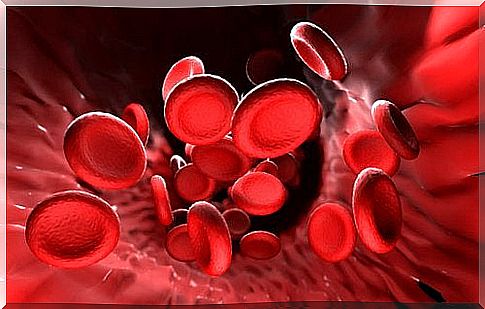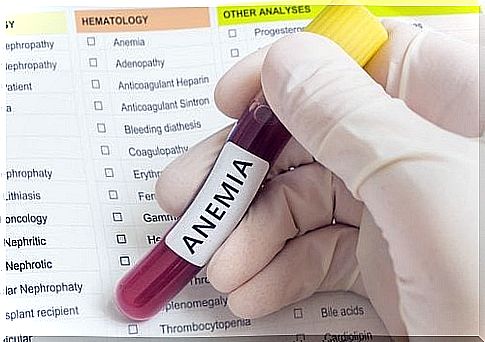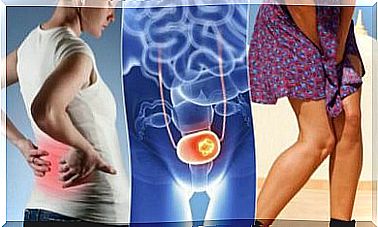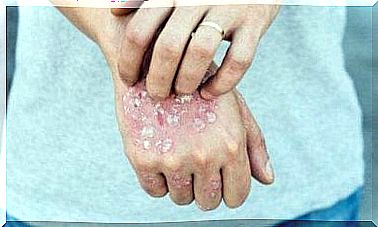Iron Deficiency: Consequences For The Body

Iron deficiency is recognized mainly by the presence of anemia. But this problem has many more negative consequences that we should know.
If you suspect that you have a low level of iron in your body, we recommend that you consider the symptoms listed below.
Iron deficiency is a global problem

Millions of people suffer from iron deficiency, both in developed and underdeveloped countries, due to insufficient consumption of this mineral.
No one should ignore iron deficiency, because this problem has serious health consequences.
Among other things, iron helps the proper functioning of hemoglobin and provides oxygen to cells. Since this nutrient is found in small amounts in the body, it is necessary to get it from the diet, through a balanced and diversified diet.
There are two types of iron:
- Heme iron: it is found in animal meat and is easily absorbed into the body.
- Non-heme iron: it is found in vegetables and is more difficult to assimilate in the body. That is why many vegetarians or vegans suffer from anemia.
Iron also has the following roles:
- It participates in the production of several substances present in the blood.
- Intervenes in DNA synthesis;
- It is part of the respiratory system of cells;
- Helps strengthen the immune system.
As if that were not enough, iron also participates in many chemical reactions, being essential for the production and release of energy.
Iron level in the body
You can have a blood test to find out if you have iron deficiency or not:
- In adult men, normal values are between 80 and 180 ug / dl.
- In adult women, between 60 and 160 ug / dl.
- In children, the values vary between 50 and 120 ug / dl.
- In children under 1 year, the normal level is between 100 and 250 ug / dl.
An iron level that exceeds the usual limits can cause diseases such as:
- Hemochromatosis
- Hepatitis
- Hemolytic anemia
- Iron poisoning
At the same time, iron levels may decrease in certain circumstances, including:
- Task
- Malnutrition
- Cancer
- Chronic blood loss
- Chronic hypermenorrhea
The consequences of iron deficiency

The body sends signals warning us that it is facing an iron deficiency. If you have several of these symptoms, it is advisable to go to the doctor and have some blood tests:
1. Fatigue and weakness
No matter how many hours you sleep or how much you rest during the day, you always feel lethargic and weak. It’s hard for you to wake up in the morning and fall asleep where you can.
In addition to daily obligations, weakness and fatigue can also be caused by iron deficiency. As this nutrient helps transport oxygen to the cells, in its absence the tissues do not receive enough “fuel” and do not function as they should.
Therefore, lack of vitality and increased fatigue after low-impact activities may be signs of iron deficiency.
2. Poor performance and poor mood

Lack of this nutrient has a direct impact on your emotional state. That is why it is normal to be very irritable, depressed or in a bad mood if you have an iron deficiency.
If we add fatigue to the inconveniences already mentioned, the consequences are easy to guess: poor performance at work, difficulty in studying or completing daily tasks.
If everything is going badly for you lately and you can’t focus on your daily activities, you should investigate this situation a bit.
In addition, iron deficiency has a negative influence on memory and attention. You have to make a double effort to do what you set out to do. At the same time, you will lose your motivation very quickly, even if you try to carry out activities that you usually enjoy.
3. Pallor
When you have anemia, your skin may become paler or whiter than usual because your dermis and connective tissues do not receive enough oxygen.
Some people may have a whitish color under the eyes (where the lashes start).
4. Dizziness and nausea

One of the consequences of iron deficiency and a decrease in the amount of oxygen in the cells is the constant feeling of dizziness.
In addition, you may sometimes feel short of breath when trying to breathe. It is also possible to inhale faster and more often (polypnea).
In severe cases, people who do not consume enough iron can faint at any time of the day, have their ears pricked or suffer from lipodystrophy.
5. Palpitations
Rapid heartbeat when you do not make a major effort or exercise can be associated with iron deficiency.
When the blood is not circulating as it should, the heart has to make an extra effort to pump it to each organ. Other major ailments may occur, such as tachycardia, cardiac arrhythmia or myocardial infarction.
6. Fragile nails and hair loss
When the nails break easily, are thin or have white spots near the cuticles, the reason may be iron deficiency.
Regarding hair loss, the cause is the fact that the blood reaches the head area with a small amount of oxygen, so the follicles are not nourished as they should.









